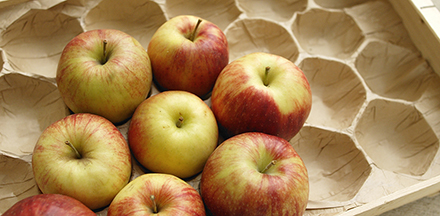Worldwide, people have been complaining about the excessive use of plastic wrapping for fruit, vegetables and other products for years.Paola Gosio, an EU Policy Analyst at the Brussels-based research and consulting company White Research, decided to do something about it. Source: Timberbiz
Along with her classmates during her European Studies master’s program in 2019, she submitted a petition to the European Parliament asking for a revision of Directive 94/62/EC on packaging and packaging waste. It asked for a ban on fruit and vegetables from being sold in plastic and a reduction in packaging and its related waste.
Banning the sale of fruit and vegetables in plastics is exactly what the French government has decided to do. About 30 types of produce, including leeks, aubergines, apples, bananas and oranges, must be sold without plastic packaging from 1 January 2022.
This measure is expected to prevent more than one billion plastic packaging items yearly.
Spain is the second country in the European Union that will ban the sale of any fruits or vegetables in plastic wrapping weighing under 1.5 kilograms in supermarkets from 2023 onwards. The country generates 1.6 million tonnes of waste from plastic packaging every year and recycles less than half.
Instead of plastic, retailers and consumers in France and Spain are being encouraged to use cardboard packaging or reusable bags and containers.
“Everybody wants to get rid of unnecessary plastics,” Janne Varvemaa, Director of Products & Technology at UPM Specialty Papers said.
“However, plastic is an excellent and versatile material for its functional properties. The problem is that products are sometimes overpacked or used packaging material is not properly collected and recycled. There are also opportunities to replace fossil-based materials with renewable alternatives.”
This, he thinks, opens up opportunities for fibre-based packaging, thereby supporting a circular economy.
“Historically brand owners have aimed to maximise the convenience of packaging, but now they are increasingly looking for ways to improve sustainability,” he said.
The European Parliament invited Ms Gosio and her former classmates to present their petition about banning plastic wrapping for fruits and vegetables.
“Many Commissioners and members of parliament share the same concerns,” she said. “The fact that they left our petition open is a good sign: they’ll probably discuss the topic further.”
She thinks the French and Spanish bans are good news, adding: “It’s a good start, but to stop plastic pollution and to reach a circular economy, this must be tackled on a European level, so a change in the European Directive on packaging and packaging waste is necessary.”
According to many nutrition companies and plastic packaging manufacturers, plastic wrapping reduces food waste.
“This is an argument you often hear,” Ms Gosio said. “But if you go to a farmers’ market, you see that no wrapping is used, especially in the case of fruits and vegetables that have a strong protective peel, like apples and oranges. In other cases, paper or cardboard can be an option.”








